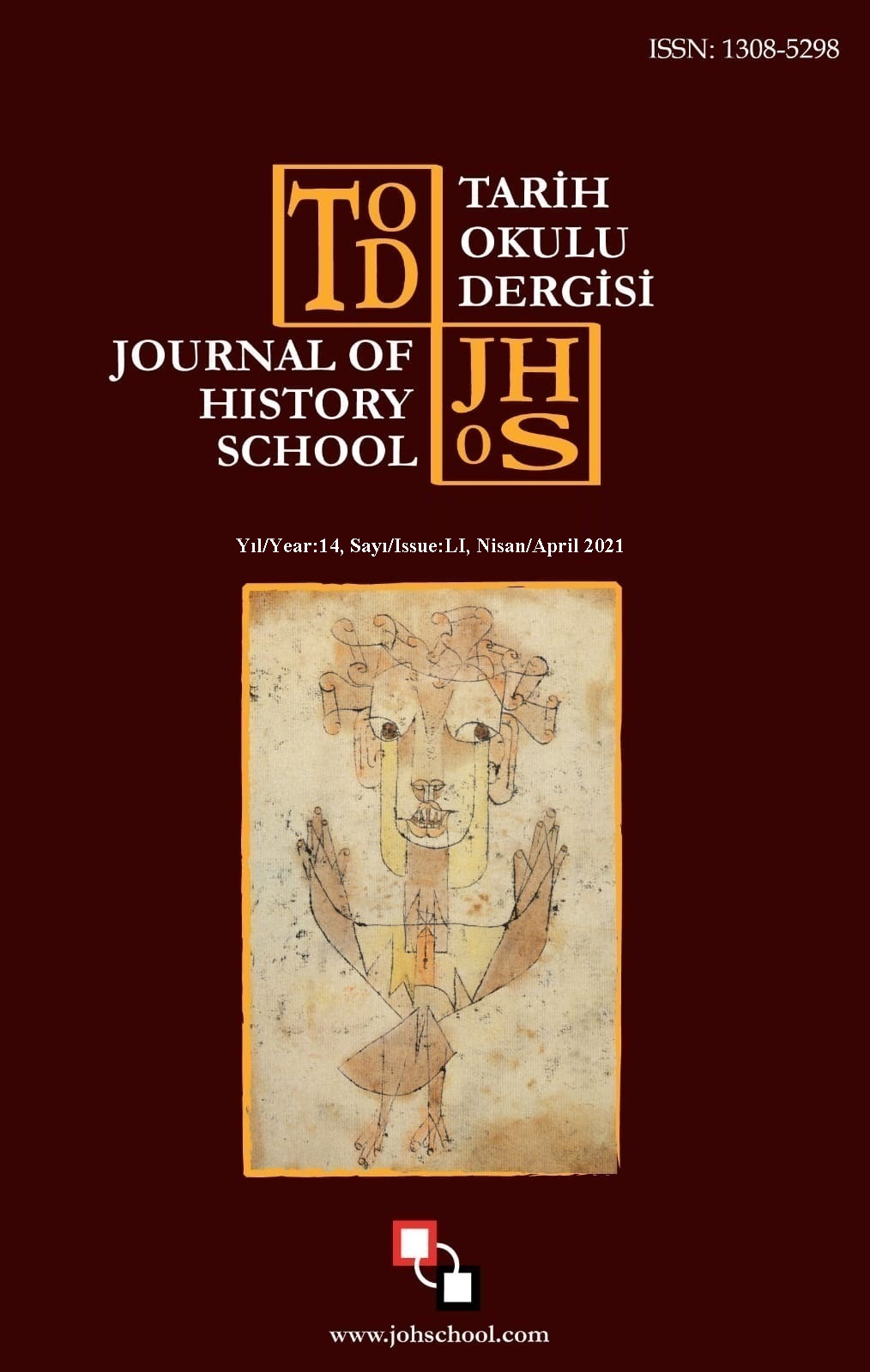Author :
Abstract
Osmanlı son döneminde Jön Türk Devrimi’nin akabinde İstanbul’a imparatorluğun dört bir yanından işkence şikayetleri içeren çok sayıda dilekçe gönderilmiştir. Dilekçelerde yeni rejimin söyleminin temelini oluşturan insan hakları ve hukuk devleti gibi kavramları sıradan insanların işkence muamelesi üzerinden anlamlandırdıkları ve bu düzlemde söz konusu kavramları öne sürerek iktidarın müzakeresi çabasında oldukları anlaşılmaktadır. Nitekim, zaman zaman oldukça çarpıcı ve cesur ifadelere başvurarak, Jön Türk rejiminin bir tarihsel kırılma, yeni bir başlangıç teşkil etme iddiasını işkence muamelesi üzerinden sorgulamaktadırlar. Her ne kadar dilekçelerde, muhtemelen taktiksel olarak, insan hakları ve hukuk devleti gibi kavramların bir uzantısı olarak işkence muamelesinin kabul edilemezliği Jön Türk Rejimiyle özdeşleştirilmişse de sıradan insanlar açısından benzer bir anlayış ve söylem önceki Tanzimat ve II. Abdülhamid dönemi dilekçelerinde de kendini açığa çıkarmaktadır. Jön Türk dönemi dilekçelerinde oldukça yaygın olarak işkencenin insan hakları ve hukuk devleti ilkeleriyle çelişkisi söz konusu ilkelere ev sahipliği yapmadığı varsayılan II. Abdülhamid dönemiyle karşılaştırmaya başvurularak vurgulanmış olması bir yana, ironik bir şekilde, hem insan hakları ve hukuk devleti hem de bunların işkenceyle bağlantısıyla ilgili yoğun bir farkındalık ve bilinçlilik hali II. Abdülhamid dönemi dilekçelerinde de gözlemlenebilir. Yine, Tanzimat’ın erken yıllarında tıpkı Jön Türk döneminin başlarında olduğu gibi işkence muamelesinin mevcut olmaması talebi kitlelerce radikal bir dönüşüm beklentisinin en somut ifadesi olarak ortaya çıkmaktadır. Dilekçelerdeki ortak söylem ve işkence yasağının anlamına dair bilinçlilik hali açısından var olan süreklilik işkence muamelesinin mevcudiyetinin ya da yokluğunun sıradan insanların siyasal rejimin niteliğini belki de en yakından deneyimledikleri bir düzlem olmasıyla açıklanabilir.
Keywords
Abstract
During the Young Turk Period, from the months following the July 1908 Revolution, the higher authorities in İstanbul, particularly the Sublime Porte, received many petitions raising official complaints against the practice of torture. They commonly employed the official discourse of the new regime by emphasizing its claim to start a new beginning in Ottoman history. They furthermore proposed the practice of torture as the yardstick for whether or not a radical transformation took place. The language of these petitions suggests that common people across the social-economic and ethnic-religious backgrounds possessed a comprehensive awareness of why the practice of torture was illegal, particularly, the connection between on the one hand the abolition of torture and on the other the rule of law and individual rights. They thereby sought to negotiate political power often through bold and remarkable statements. While the petitions from the Young Turk period produce the impression that both the abolition of torture and accompanying modern principles, namely, the rule of law, individual rights and equality were unique to the Young Turk Regime, ironically, one can trace the same principles grounding the official grievances against torture in the petitions from both the Tanzimat and Abdülhamid II Periods. Furthermore, similar to the early Young Turk Period, in the petitions from the first decades of the Tanzimat, the practice of torture presents itself as the most visible domain through which to see whether the Tanzimat fulfilled its promise to constitute a historical rupture. This conceptual and discursive continuity is arguably due primarily to that it was through the practice of torture that ordinary Ottomans most commonly and closely faced the arbitrary exercise of state authority.
Keywords
- Asad, T. (1997). On torture, or cruel, inhuman, and degrading treatment. A. Kleinman & V. Das & M.M. Lock (Ed.), Social Suffering içinde (ss. 285308) University of California Press.
- Aksin, S. (2007). Turkey, from Empire to Revolutionary Republic: the Emergence of the Turkish Nation from 1789 to Present. NYU Press.
- Ben-Bassat, Y. (2017). The Ottoman institution of petitioning when the sultan no longer reigned: a view from post-1908 Ottoman Palestine. New Perspectives on Turkey, 56(87), 87-103.
- Campos, M. (2010). Ottoman Brothers: Muslims, Christians, and Jews in Early Twentieth-century Palestine. Stanford University Press.
- Chalcraft, J. (2005). Engaging the state: peasants and petitions in Egypt on the eve of colonial rule. International Journal of Middle East Studies, 37(3), 303-325.
- Fahmy, K. (2004). Justice, law and pain in Khedival Egypt. B. Dupret (Ed.) Standing Trial: Law and the Person in the Modern Middle East içinde (ss. 85-115). I.B. Tauris.
- Faroqhi, S. (1992). Political activity among Ottoman taxpayers and the problem of Sultanic legitimation (1570-1650). Journal of the Economic and Social History of the Orient, 35(1), 1-39.
- Gökcen, A. (1989). Tanzimat Dönemi Osmanlı Ceza Kanunları ve Bu Kanunlardaki Ceza Müeyyideleri. A. Gökcen.
- İnalcık, H. (1988). Şikayet Hakkı:'Arz-ı Hal ve'Arz-ı Mahzar'lar. The Journal of Ottoman Studies, 7(07-08), 33-53.
- Kansu, A. (1997). The Revolution of 1908 in Turkey. Brill.
- Kırlı, C. (2015). Tyranny illustrated: from petition to rebellion in Ottoman Vranje. New Perspectives on Turkey, 53, 3-36.
- Lange-Akhund, N. (1998). The Macedonian Question, 1893-1908, from Western Sources. Columbia University Press.
- Mardin, Ş. (2006). Tanzimat Fermanı'nın Manası: Yeni Bir İzah Denemesi. H. İnalcık & M. Seyitdanlığlu (Ed.), Tanzimat: Değişim Sürecinde Osmanlı İmparatorluğu içinde (ss. 149-152). Türkiye İş Bankası Kültür Yayınları.
- Peters, R. (2005). Crime and Punishment in Islamic Law: Theory and Practice from the Sixteenth to the Twenty-first Century. Cambridge University Press.
- Petrov, M. V. (2004). Everyday forms of compliance: subaltern commentaries on Ottoman reform, 1864-1868. Comparative Studies in Society and History, 46(4), 730-759.
- Rubin, A. (2011). Ottoman Nizamiye Courts: Law and Modernity. Macmillan.
- Shaw, S. J., & Shaw, E. K. (2002). History of the Ottoman Empire and Modern Turkey: Reform, Revolution, and Republic: The Rise of Modern Turkey 1808-1975. Cambridge University Press.
- Tunaya, T. Z. (1959). Hürriyetin Ilânı: İkinci Meşrutiyet'in Siyasî Hayatına Bakışlar. Baha Matbaası.
- Zürcher, E. J. (2004). Turkey: A Modern History. I.B: Tauris. EXTENDED ABSTRACT





